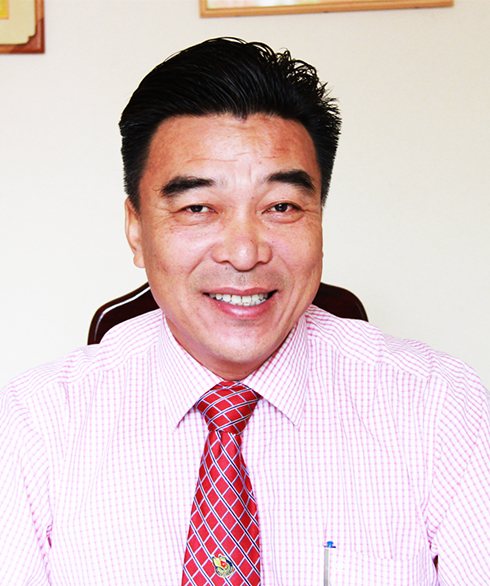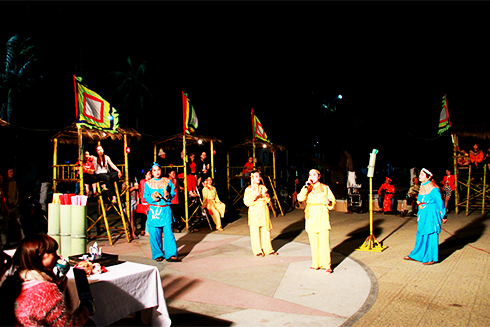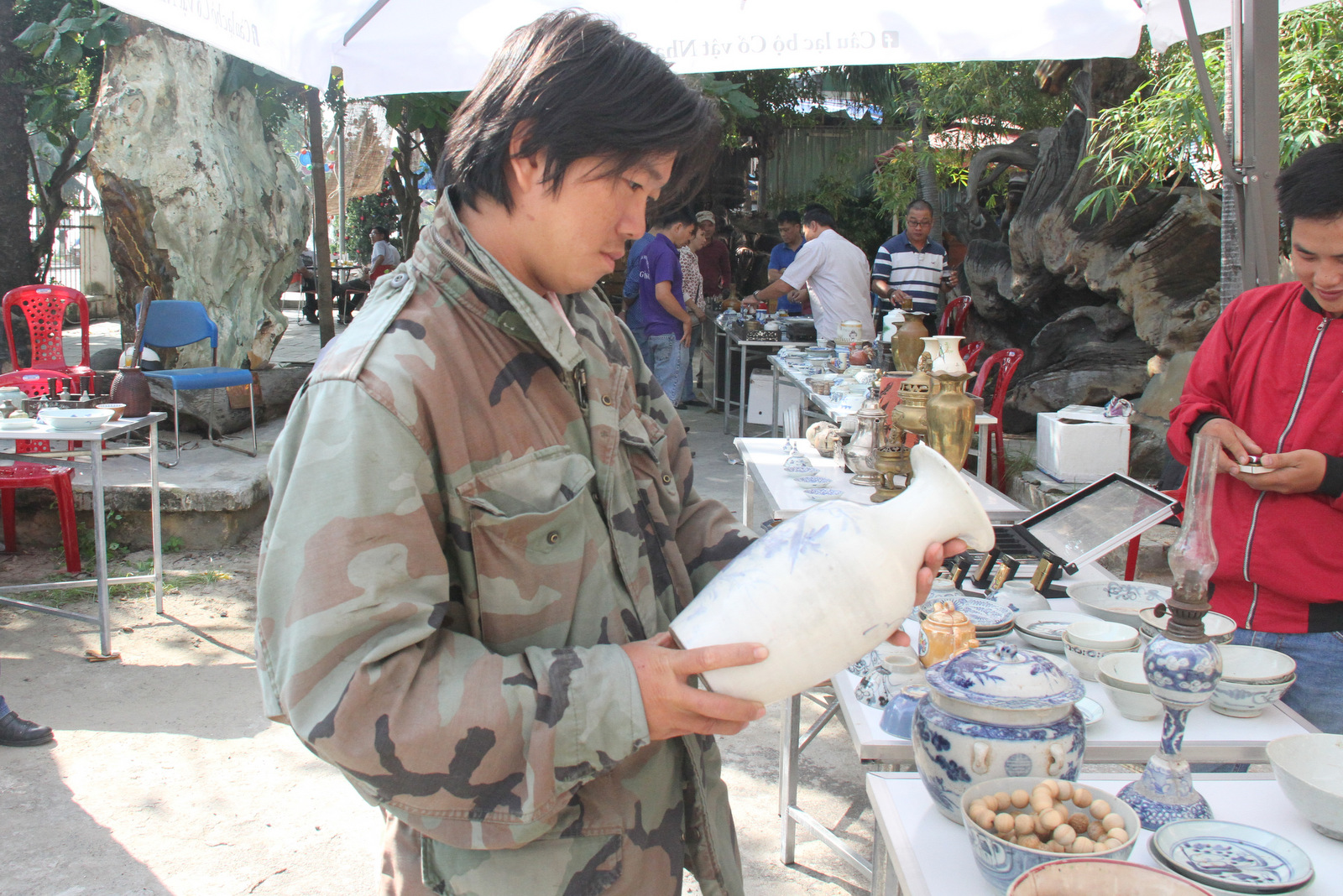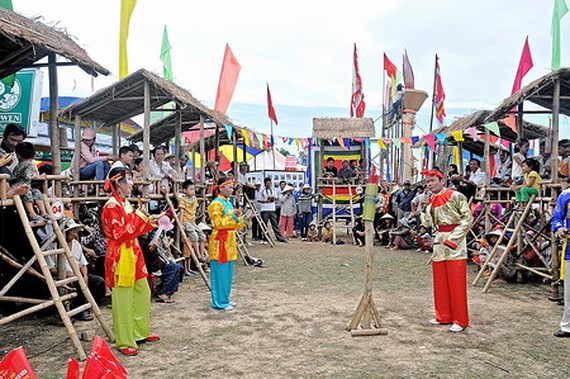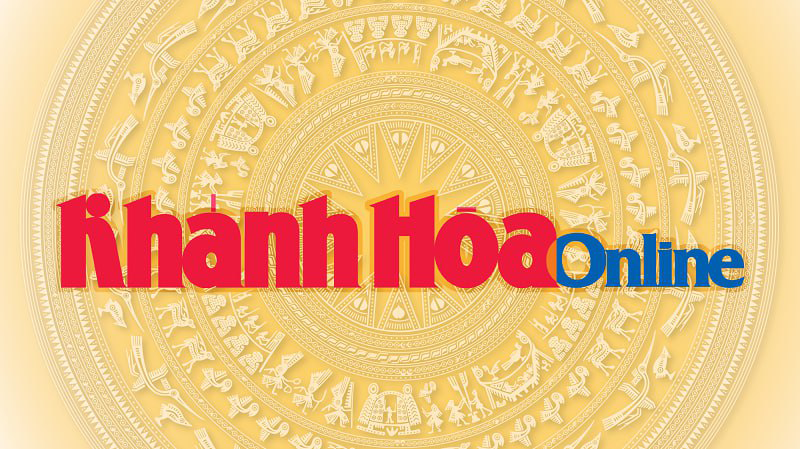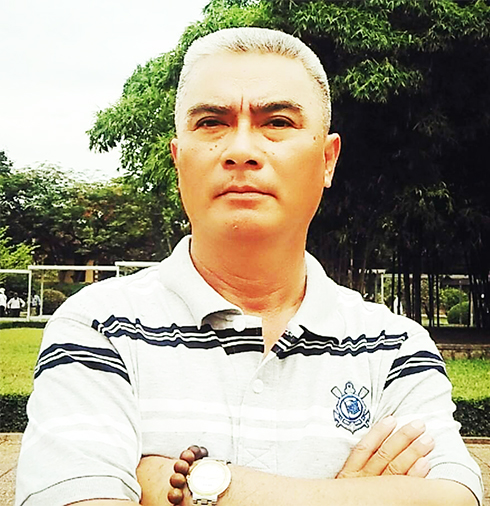
Studying and researching the culture of the ethnic communities require lots of time and efforts. Researcher Tran Kiem Hoang, who is working at Cam Ranh City Bureau of Culture and Information, has devoted most of his life to this work.
Studying and researching the culture of the ethnic communities require lots of time and efforts. Researcher Tran Kiem Hoang, who is working at Cam Ranh City Bureau of Culture and Information, has devoted most of his life to this work.
Tran Kiem Hoang started to study the culture of Raglai people in the mid-90s. At that time, Hoang together with Mau Quoc Tien accompanied the late researcher, Nguyen The Sang, to Khanh Son District to study the epics and customs of the Raglai. Since then, Hoang has had passion for researching Raglai culture.

|
During the time working at Khanh Son District Bureau of Culture and Information, Hoang often met the village patriarchs to learn and translated the epics, folk songs, and ancient stories of Raglai people into Vietnamese (official language of Vietnam). In 2007, Hoang transferred to Cam Ranh City Bureau of Culture and Information. He has continued the research works on Raglai culture. He afterwards took a master’s in culture to serve his researches.
Many researches on Raglai culture of Hoang were awarded prizes by the Association of Vietnamese Folklorists, such as belief of Raglai people in Khanh Hoa, sea associated with culture of the Raglai in Khanh Hoa, indigenous knowledge of Raglai people in Khanh Hoa, Raglai folk-songs (composed with cultural researcher Mau Quoc Tien), and matriarchal culture in Raglai epics.
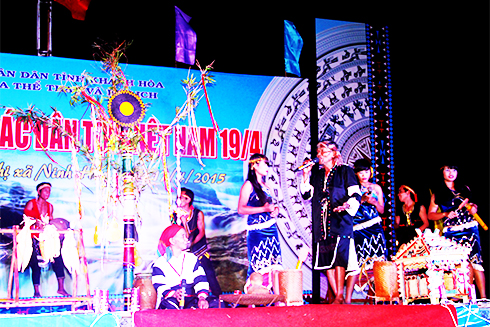
|
Besides, Hoang associated with researcher Mau Quoc Tien to collect and translate many ancient stories and epics of the Raglai. Their researches clarified the typical cultural characteristics, especially the role of sea in the culture of the Raglai. For example, a research, published by Hanoi National University Publishing House in 2010, provided a deep research on the connection between sea and Raglai epics, ancient stories, proverbs, folk poetry, and folk songs. The role of sea in the life of Raglai people was also seen through many activities and religious ceremonies. The researches further reinforced the claim that Raglai people originated from the sea and had a close relationship with Cham people.
It can be said that Hoang’s researches have contributed a lot in helping the public know more about Raglai culture. In a fast-paced world, many typical cultural characteristics of ethnic minorities are fading into oblivion. In such a circumstance, the above researches of Hoang and other cultural researchers should be appreciated and encouraged.
Xuan Thanh
Translated by H.N

